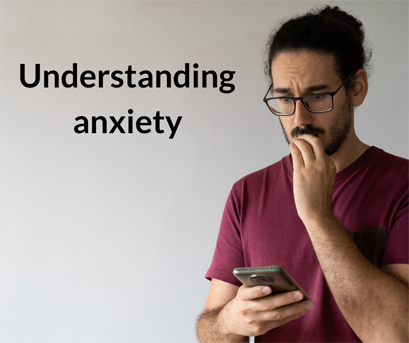Understanding anxiety
March 25, 2022
Occasional anxiety is an expected part of life. It is common to feel anxious when faced with a problem at work, before taking a test, or before making an important decision. However, for a person with an anxiety disorder, the anxiety does not go away and can get worse over time. These feelings of anxiety and panic interfere with daily activities, are difficult to control, are out of proportion to the actual danger, and can last a long time.
Anxiety affects 40 million people over the age of 18 in the United States. Anxiety causes a variety of symptoms that may range from mild to severe, including: chronic worry, restlessness, difficulty concentrating, sleep problems, increased heart rate, gastrointestinal (GI) problems, and avoiding certain situations that cause feelings of anxiety. Symptoms may start during childhood or the teen years and continue into adulthood.
Anxiety is medically characterized as an emotion that causes worry and tension. Examples of anxiety disorders include generalized anxiety disorder, social anxiety disorder (social phobia), specific phobias, and separation anxiety disorder. Individuals can have more than one anxiety disorder.
The causes of anxiety disorders aren't fully understood. Life experiences such as traumatic events appear to trigger anxiety disorders in people who are already prone to anxiety. In some cases, anxiety can be a symptom of a medical illness that is yet to be diagnosed such as heart disease, diabetes, thyroid problems, and others. Anxiety disorders also commonly run in families.
There are steps you can take yourself to prevent or manage anxiety. Stay active – participate in activities that make you feel good about yourself, and surround yourself with people you trust and that care for you. Avoid alcohol and drug use as these can worsen feelings of anxiety. Lastly, seek help early, the longer you wait, the harder anxiety is to treat.
When seeking treatment, start with your local MLHS medical provider to seek diagnosis and determine your next steps in treatment. Mille Lacs Health System offers a complete Behavioral Health department equipped to help with all your mental health concerns.
